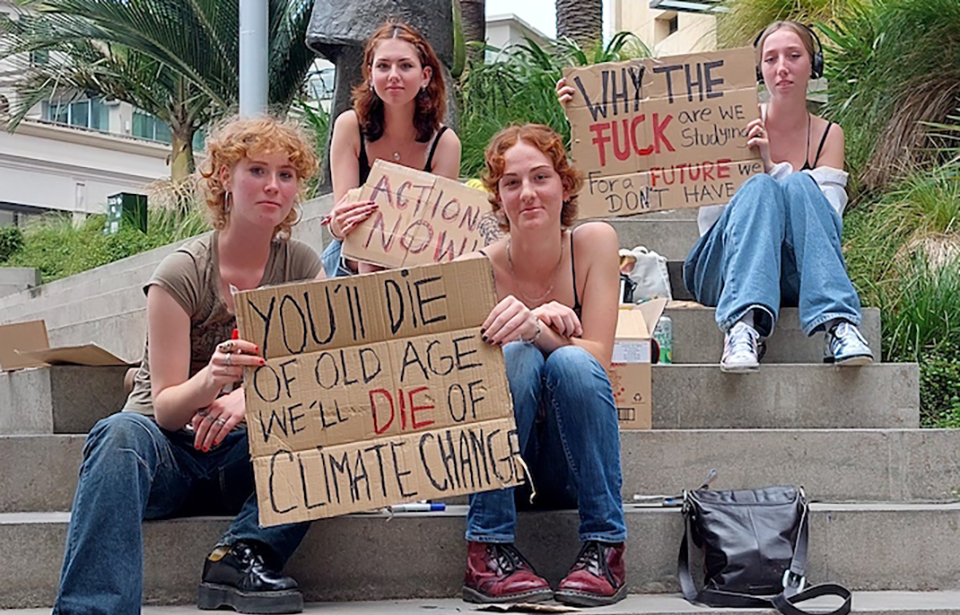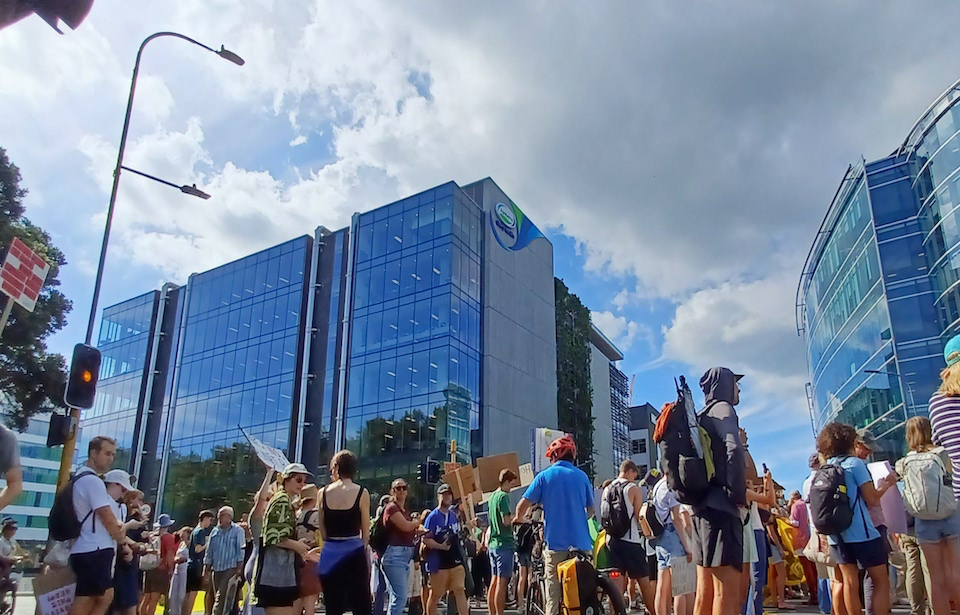Can we do this? NZ's largest city faces up to climate emergency
• May 5, 2023

Climate change is at our doorstep. What will NZ's largest city do? Background image courtesy of Stuff.
Comment
Time is running out. It has been an all-too-common sentiment from climate experts over the past decade, as they have made their pleas for immediate action to address the existential threat in front of us.
The impacts of cyclone Gabrielle and Auckland's flooding at the start of this year have given Tāmaki Makaurau and the North Island a glimpse of what is to come.
We must remember this is only the beginning of the climate crisis if we don't start making drastic changes to how we interact with the environment.
Climate experts have worked hard to examine the impact we have had on the environment, but they have struggled to get the media coverage needed to generate an appropriate sense of urgency from policymakers and the public.
Today, TWN launches A City in Crisis, a campaign exploring Auckland's response to the climate emergency and how prepared the city will be for future large-scale climate events.
How is the community responding to climate change?
In March we saw a country-wide protest organised by several major activist groups, as thousands took to the streets demanding more action to reign in Aotearoa's biggest carbon emitters.
A big theme in the Auckland march was a call for community-driven action, things like more communal gardens and composting sites.

Climate protestors in Freyburg Place. Photo: Eva Gallot.
Sophie Todd, a spokesperson for Fridays for Future, which helped organise the protest, says the organisation is preparing for more strike action leading up to this year's election.
Our campaign will cover protests around the city to give these movements more of a voice, so our readers can get a better understanding of the collective action being taken in their community.
We will also investigate local initiatives and grassroots campaigns hoping to make social change in favour of the environment.
How is the government responding to climate change?
We are currently in an election year, where we have our best chance at making a difference to how the Government addresses this issue.
This is an opportunity to take stock of all the promises made by our leaders over the past few years and hold them accountable for their follow-through.

A climate protest in the Auckland CBD. Photo: Nic George.
To tackle this crisis effectively, we need to determine who has the public's best interest at heart and who is exploiting the situation for personal or corporate gain.
This campaign will be taking a hard look at the policy proposals during the run-up to the election and seeing how they might impact Aotearoa's ability to reach our emission reduction targets.
Auckland Council's plan for climate action
Auckland Council is the second largest governing body in the country and oversees a city that is home to more than a quarter of Aotearoa's population. The way it responds to the crisis will set the tone for everyone else in the city.
Phil Goff made strong commitments to climate action when he was Auckland's mayor by declaring a climate emergency in 2019 and focusing his budget on expanding access to public transport, along with other initiatives.
However, Wayne Brown's proposed budget cuts threaten to undermine all our progress in the city, which could set us back a long way when we are already running out of time.
Whether Mayor Brown likes to admit it or not, Auckland will need to bear the brunt of the cost of addressing the crisis. It is just whether that will be proactive in an attempt to save lives, or reactive to save money.
In this campaign, we will look at how the council's proposed budgets are impacting our local institutions' ability to prepare for future climate events and assess the potential harm this poses to our climate action efforts.
How is the private sector responding to climate change?
If you strolled down most aisles in a grocery store, you might think companies are taking the climate crisis seriously with their "green" and "eco-friendly" products.
However, many businesses have used the climate crisis as a marketing tool by changing the colour of their product packaging and sticking a green label on it to convince consumers they are supporting sustainability while still producing massive amounts of pollution.
While greenwashing highlights the importance of the environment through branding, it undermines real efforts to address the crisis. It swindles shoppers into thinking they can buy their way to a solution.
This is not always the case with every business, but our campaign will investigate these corporate initiatives and help determine whether they are making a legitimate effort to bring down pollution.
With our careers laying ahead of us, we have the opportunity to impact the future of journalism by centring the climate with our stories and drawing awareness to the crisis.
The onus is on all of us, and we need to decide whether we are going to step up and meet the moment or bury our heads in the sand.


‘Strong, proud and skilled' - Māori tradeswomen use social media to inspire other wāhine
Haley Doig • June 26, 2025




‘Strong, proud and skilled' - Māori tradeswomen use social media to inspire other wāhine
Haley Doig • June 26, 2025